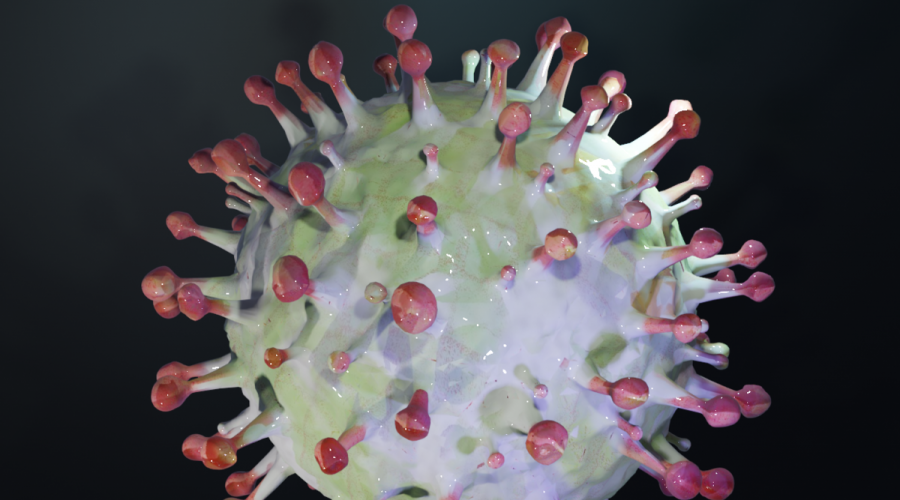
Our pre-bunk game not only improved people’s ability to spot fake news but also their confidence in judging what is true or false.
Melisa Basol
A new online game that puts players in the shoes of a purveyor of fake pandemic news is the latest tactic in the UK Government’s efforts to tackle the deluge of coronavirus misinformation that is misleading many and costing lives across the world.
Launched to the public today, the Go Viral! game has been developed by the University of Cambridge’s Social Decision-Making Lab in collaboration with media agency DROG and the UK Cabinet Office.
It builds on research from Cambridge psychologists that found that, by giving people a taste of the techniques used to spread fake news on social media, it increases their ability to identify and disregard misinformation in the future.
Go Viral! launches as a new study from the team behind it, including Gates Cambridge Scholar Melisa Basol [2018], is published in the Journal of Experimental Psychology: Applied. The latest findings show that a single play of a similar game can reduce susceptibility to false information for at least three months.
“Fake news can travel faster and lodge itself deeper than the truth,” said Dr Sander van der Linden, who leads the project and the Social Decision-Making Lab at Cambridge.
“Fact-checking is vital, but it comes too late and lies have already spread like the virus,” he said.
Covid-era manipulation
The new 5-7 minute game introduces players to the basics of online manipulation in the era of coronavirus. It acts as a simple guide to common techniques: using emotionally charged language to stoke outrage and fear, deploying fake experts to sow doubt and mining conspiracies for social media Likes.
“By using a simulated environment to show people how misinformation is produced, we can demystify it,” said Dr Jon Roozenbeek, co-developer of Go Viral! and researcher at Cambridge’s Department of Psychology. “The game empowers people with the tools they need to discern fact from fiction.”
Go Viral! is based on a pre-COVID iteration, Bad News, which has been played over a million times since its 2018 launch. Cambridge researchers developed and tested Bad News, and found that just one play reduced perceived reliability of fake news by an average of 21% compared to a control group.
The research team, including DROG and designers Gusmanson (who also worked on Go Viral!), argue that this neutralising effect can contribute to a societal resistance to fake news when played by many thousands of people.
These initial results were confirmed in an even more rigorous replication study published in January this year. “Our pre-bunk game not only improved people’s ability to spot fake news but also their confidence in judging what is true or false,” said Melisa Basol, a Cambridge Gates Scholar who led the study.
“This confidence boost only occurred for those who got better at accurately identifying misinformation,” she said.
Innoculating against fake news
Intervention effects in social psychology often dissipate within days. However, the team’s latest findings, published this week, show that – when paired with added testing – the ‘inoculation’ of a single Bad News play lasts at least three months (the time limit of the study).
“We were very encouraged by the new results on longevity,” said Rakoen Maertens, lead author and PhD candidate in Cambridge’s Social Decision-Making Lab. “In a society with ever-changing manipulation threats, the unique approach of interventions such as Bad News and Go Viral! can offer long-lasting effects not found when using a simple fact-check.”
Go Viral! is a leaner, Covid-focused experience. The team used research on the current surge in coronavirus conspiracies – called an ‘infodemic’ by the WHO – to hone the game, creating a more direct version that is faster to complete and easier to adapt for different languages and cultures.
Recent research suggests that close to six thousand people around the world were hospitalised in just the first three months of this year due to coronavirus misinformation, with many dying after consuming cleaning products.
The game exposes the most pervasive ‘infodemic’ tactics. Players find out how real news gets discredited by exploiting fake doctors and remedies, and how false rumours such as the notorious 5G conspiracy get promoted.
It also touches on how out-of-context video gets used to add credibility to fake news – and ends with conspiracies slipping beyond your control, even seeping into the mainstream. Players are provided with a sharable score and connected to the WHO’s COVID-19 ‘mythbusters’.
The Go Viral! project began with seed funding from Cambridge University’s Covid-19 rapid response fund, with support and backing from the UK Cabinet Office.
The collaboration is aiming to get out translations of the game right across the globe (German and French will also be available on launch day). The research team are working on further evidence-gathering through randomised experiments with national samples.
*To play Go Viral! click here.












